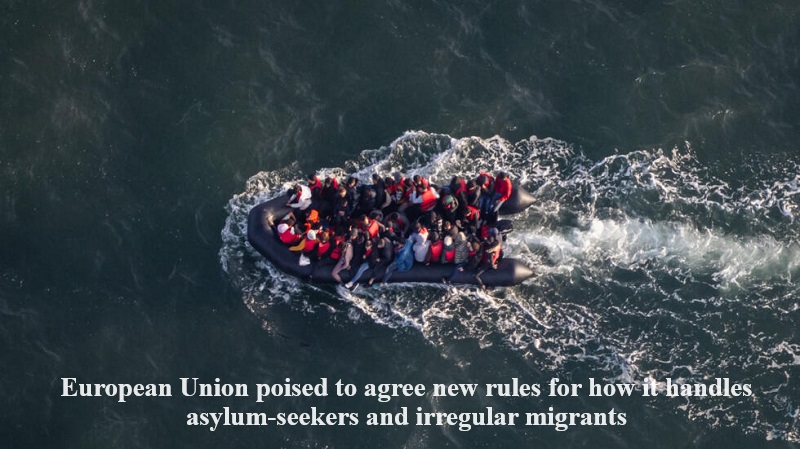
The European Union is on the verge of finalizing new rules for handling asylum-seekers and irregular migrants after Germany indicated its support for the negotiated package.
EU home affairs commissioner Ylva Johansson stated that there are “no main obstacles” left on this challenging issue following a meeting of the bloc’s interior ministers. Formal agreement is expected to be reached “in a few days.”
The new Pact on Migration and Asylum, once implemented, aims to alleviate the pressure on frontline countries like Italy and Greece by redistributing some arrivals to other EU member states. Countries unwilling to host asylum-seekers, including Poland and Hungary, would be required to provide financial support to those that do accept migrants.
Simultaneously, the European Union intends to expedite the processing of asylum applications to ensure that migrants deemed inadmissible are promptly returned to their country of origin or transit. Maximum detention times for migrants in border facilities would be extended from the current 12 weeks.
German Interior Minister Nancy Faeser revealed that her country secured concessions that allowed it to support the deal after initially abstaining from an earlier draft that it considered too harsh for certain categories of migrants.
Only Poland and Hungary expressed opposition to the compromise text during the Brussels meeting, according to Faeser, indicating that the political agreement is likely valid.
Changes made to gain German approval included prioritizing families and children arriving irregularly on EU soil and maintaining the existing admission criteria for asylum-seekers. Additionally, the concept of instrumentalization was more narrowly defined, potentially addressing concerns related to the treatment of migrant rescue operations in the Mediterranean and the manipulation of migration flows.
Italian Foreign Minister Antonio Tajani mentioned that his country needed more time to review the latest text.
Spanish Interior Minister Fernando Grande-Marlaska, who chaired the Brussels meeting, emphasized that “a very broad majority of member states” supported the compromise approach. While some “nuances” still require clarification, he expressed confidence that a final agreement would be reached “within the next few days.”
The EU had been facing mounting frustration and challenges related to irregular migration, with the situation on the Italian island of Lampedusa serving as a catalyst for revising the policy. The revised policy aims to enable EU countries to act collectively in response to sudden large inflows of asylum-seekers.
The EU’s goal is to enact the reform into law before the European elections scheduled for next June, which will usher in a new European Parliament and Commission. The changing political landscape in the European Parliament, with the rise of right-wing parties in several EU countries, could impact the outcome of these elections.
In Budapest, Gergely Gulyas, chief of staff of Hungarian Prime Minister Viktor Orban, criticized the migration pact, warning that it could turn border countries into similar situations as Lampedusa.
The European Parliament added pressure to the ministers by deciding to pause negotiations with EU member states on aspects of the pact related to reinforced security along the EU’s outer border.
The next political cycle in EU politics could potentially bring a shift in the European Parliament, especially given the rise of right-wing parties, and Hungary and Poland are set to take turns holding the rotating EU presidency.

Post Your Comments